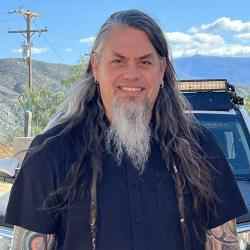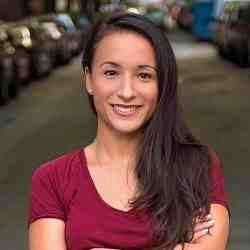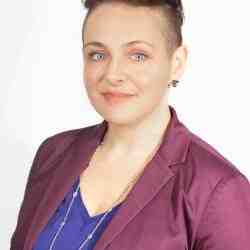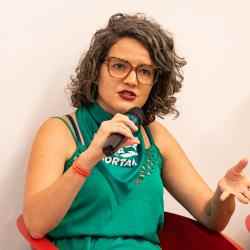Introdução
Sarah is building a whole new generation of Muslim women who re-take ownership of their own narratives, having their voices finally represented in the debate about their rights and the discriminations they endure. She drives them through a healing and empowering journey that allows them to influence the way individuals and institutions consider and address discriminations.
A nova ideia
Sarah wants to give all Muslim women a chance to reach self-fulfillment and live peacefully with their multiple identities without being told, by their community or society, what they should chose, be or do. She realized that Muslim women could only overcome self-censorship mechanisms by understanding the systemic dynamics in which they are locked in and by joining their forces to find courage and legitimacy to change the status quo. Her organization Lallab is a unique, inclusive and safe space enabling her to build a strong community of diverse women eager to learn from each other, regardless of their social background, educational level, relation to religion/faith or type of challenges they face. There, they initiate a reconciliation and healing process as well as develop their expertise, objectivity and legitimacy on the issue. Understanding they have a role to play in society, Lallab members start to become active agents of change in their private sphere and beyond, allowing Sarah to have a tremendous indirect impact on social norms and narratives.
By taking them through this transformative journey, Sarah spurs a new generation of Muslim women raise their voices and take part in the debate, when otherwise they would normally remain silent. She is creating with them an unprecedented media space, having their voices finally represented. By harnessing the potential of her diverse community and collaborating with French and international medias, Sarah disseminates new narratives on Muslim women, adding nuance and objectivity to the current polarized debate on their situation. Through the production of qualitative, credible and non-dogmatic content by the women themselves, Lallab manages to inspire other Muslim women and shift the society’s mindset about them. As a result, they have been increasingly included in and able to influence conversations and public debates about women’s rights, not only nationally and Europeanly but above all at the local level. Cities working with them are starting to operate major changes in the way they support and empower Muslim women, laying the foundations for inclusive approaches they would replicate to other minorities.
O problema
France has one of the largest Muslim populations in Europe, estimated at 8% of the total population, forming the second religious community in the country. However, according to a 2020 report published by the National Human Rights Advisory Commission, 44.6% of French people think Islam is a threat to national identity. This growing islamophobia shared all over Europe leads to social, cultural, and economic discrimination as well as violence, of which Muslim women are often the first victims.
Equality of rights in France is typically associated with universalism and secularity (french“laicité”). Therefore, it has been considered that cultural or religious differences must remain in the private sphere. Consequently, the intersectionality of discriminations is rarely taken into consideration by institutions or historical organizations fighting against sexism or racism, and community-based approaches to defend Muslim women’s rights are considered as mere activists, representing a threat to democracy and to the unity of the nation. Muslim women are excluded from the debate around their rights. This leads to absurd situations where issues relating to the difficulties they encounter inside and outside their community are discussed without them being present and are often solely focused on the veil. Actions and programs to support them often urge them to give up part of their culture for more integration. Measures intended to emancipate them sometimes end up being even more discriminatory by excluding them from the public space. For example, wearing a headscarf prevents you from being a civil servant or even to accompany your kid on a school trip.
Additionally, the general narrative about Muslim women circulated in the media and by politicians is stereotypical and conveys anxiety. They are usually portrayed as all weak and oppressed or as being brainwashed by patriarchal visions. Spanish researcher Laura Navarro, in her study titled Islamophobia and Sexism: Muslim Women in Western Mass Media, states that Muslim women are simultaneously represented as “victims of their own culture and a threat to ours". Indeed, the media coverage rarely presents Muslim women as having agency since they are rarely invited to speak for themselves. This feeds people’s prejudices on Muslim women and perpetuates discriminations. According to a study led by the National Human Rights Advisory Commission in 2018, 59% of French people consider that wearing the veil is not compatible with French society’s values and a 2020 report from the Collective Against Islamophobia in France stated that 70% of declared Islamophobic acts are perpetuated against women. In terms of work, according to a study made by researchers in 2014 (Tisserant), the probability that Muslim women get a job interview after sending a CV is 16%, versus 23% for non-Muslim women; when Muslim women wear a headscarf, the differential is multiplied by 7. Muslim women live in a society that tends to urge them to make a choice between their religion/culture and their social integration.
Internalizing the stereotypes conveyed about them, many Muslim women lack the knowledge and role models to understand how to juggle between their multiple identities and peacefully choose the path they want to take. They go through their difficulties individually, viewing them as personal “apparent” contradictions they should manage to reconciliate on their own, and end up being isolated. Consequently, Muslim women remain silent as they do not feel legitimate to speak up and do not share their struggles, including among themselves. They develop a high level of self-censorship with negative consequences on their confidence, their careers choices, and sometimes their mental and physical health.
A estratégia
Sarah has developed a positive, inspirational, non-ideological discourse that enables her to reach a broad range of women who can recognize themselves in the movement without fear of being judged or being forced to think in a dogmatic way. Indeed, a core conviction Lallab firmly advocates is that Muslim women have the free-will and capacity to take part in building solutions for themselves. The Lallab community is inclusive of all believes, ethnicities, sexual orientation etc. This inclusiveness is embodied by the strategic positioning of Lallab as a feminist organization driven by the will to give every woman the opportunity to choose her path without having to make concessions on her culture and religion. As a result, the women constituting the community are coming from very different social backgrounds -from stay-at-home mothers to doctors, and even non-Muslim feminists convinced by this new way of approaching feminism are part of it. This feminist positioning coupled with a creative outreach strategy has allowed Sarah to quickly build a large and plural community that guarantees representativeness, crucial to bring the voices of Muslim women in the society’s debate.
Establishing Muslim women’s legitimacy and ability to speak for themselves is also key in Sarah’s strategy. To overcome their self-censorship and strengthen their acumen, she is building Lallab as a learning community and position its members as experts. At Lallab, knowledge is at the center and its members are in charge of creating it, with the support of specialists such as historians, sociologists or organizations working on the discrimination field. Community life is supported every month by training sessions and learning opportunities moderated by members themselves to deep-dive into specific topics. Sharing and deconstructing the issues they face initiates their internal reconciliation process. Moreover, being positioned as experts not only has a massive impact on their own self-definition but also helps them develop a factual, impactful discourse, far from anything rigid they could be accused of. In less than 4 years, Sarah has managed to convene a community of 500 members. 83% of them assert that, thanks to Lallab, they have regained confidence and feel more equipped to peacefully make their own choices. Dozens of inspiring examples from Lallab members exist: deciding to get back to school, end a toxic relationship, make health decisions related to contraception, live their faith, choose a new professional path they didn’t dare to take before, etc.
The reconciliation and learning process makes its members feel legitimate to speak for themselves. Sarah can then tap into the potential of her large and diverse community to disseminate alternative narratives. Members are offered writing workshops and media training and encouraged to speak up about the choices they make and to share insights on how they peacefully combine their feminism and their religion. They also build messages on the difficulties and discriminations they experience and showcase inspiring role models. The first groups Lallab members are targeting are other Muslim women within their own communities. They reach them through individual actions led spontaneously in their private sphere, articles and videos published in an online magazine visited every month by 30,000 readers, and the organization of inspirational public events (festival, debates etc.).
Sarah has also developed a mainstream media strategy and has created an unprecedented space for Muslim women voices to be expressed. She understands that some of the journalists who are nurturing a stereotypical representations of Muslim women do so because (1) they don’t know any and (2) because they lack the hook/positive news needed to convince their editors that it is worth writing about them. Therefore, in 2018, in partnership with the US based organization Muslim Girl, she launched the first Muslim Women’s Day in France. Every year, 15 mainstream medias (Liberation, Mediapart, Le Monde etc.) give voice to and celebrate Muslim Women. This strategy has allowed Lallab members to become identified as credible sources for journalists who acknowledge the quality of the content provided and know they will find the right expertise in such a diverse community. Indeed, Sarah doesn’t have one spokesperson but put the journalists in touch with the most relevant Lallab member regarding the interview’s topic : a doctor on health issue, a jurist on legal situations, an unemployed women on working issues, etc. Additionally, Lallab leverages every interview opportunity to challenge the journalists’ habits and train them on new inclusive behaviors.
As a result, Lallab members have a significant presence in the media, with a total of more than 300 media interventions and weekly solicitations. In 2018, Sarah powerfully convinced 35 journalists to sign an Op-Ed committing themselves to changing their practices and calling all their peers to challenge their narrative around Muslim women. Furthermore, Sarah instrumentally uses the relationship she has built with anglophone publications (The New York Times, Washington Post…) through the Muslim Women’s Day to feed the French debate. Indeed, she understands that these publications are actually great allies: observing the French situation from an outsider perspective, they often call out stereotypes and discrimination being circulated by French people, sparking immediate reactions from French media or institutions. Additionally, thanks to its feminist positioning and the traction it gets in the media, Lallab started to approach influential and renown feminists thought leaders and is slowly able to help them change their own narratives towards inclusiveness. For example, in 2020, Lallab participated in the actualization of the French version of the famous feminist book “Our bodies, Ourselves”, originally published in the 1970’s by a collective of American feminists which scaled all around the world.
Sarah’s work lays down the foundations for a deeper change in people’s and institutions behaviors towards Muslim women. Lallab members’ leadership makes possible a thorough advocacy work at the national and European level that contributes to making islamophobia and discriminations against Muslim women institutionally recognized and addressed. To state one example, Lallab’s recommendations to include Muslim women in debates and fund intersectional empowerment programs have been stated by the National Human Rights Advisory Commission in their 2019 report. Far from advocacy actions, Lallab members are also now able to individually initiate actions to change people’s mindsets and attitudes in their own environment, and fight against local discriminations. They change their professional counterpart’s mindsets as for example a gynecologist, who trained her peers to shift their practices regarding Muslim patients; or a professor at a research center, who created a collective of colleagues to rethink the way they conceive their research. They also dare becoming active changemakers in the society like this young woman who got involved in politics and has been recently elected mayor of her city.
Equally important is the work led by Sarah at the cities’ level, especially in the county of Val-de-Marne, where Lallab is primarily based for now. Throughout different cities of the county, she organizes a new form of dialog between Muslim women communities and all the strategic local actors in contact with them (schools, social actors, mosques, city councils…). To smoothly initiate this dialog, Lallab invites them to co-host artistic events featuring a movie-documentary showcasing international Muslim women social entrepreneurs Sarah made. Witnessing the interest and reactions of Muslim women participants they normally fail to reach or are used to seeing quiet during debates, the hosting organizations start questioning their own approaches. Building on that, Sarah is now working with city councils, starting with a pilot with the suburb-based city of Ivry, to co-develop local empowerment programs focusing on employment, sexuality and health for Muslim women. Sarah is now planning to replicate this kind of partnerships with other cities in the Parisian region, Lyon and Marseille. She will leverage these partnerships to initiate local Lallab communities, building the foundations for an environment of acceptance and wider discussion on discrimination issues at the local level.
A pessoa
Sarah’s parents immigrated from Morocco to France to study in the 1970’s. They always encouraged Sarah and her two sisters to be independent women and to be proud of their multiple identities: French, Muslim and Moroccan. Sarah soon realized how racism affected families with foreign origins. Her family was considered and told by their surroundings they were a “good Arab family” who was polite, quiet, educated and open- minded. Sarah could sense how this “positive” image was only hiding deeply entrenched stereotypes against Muslim and Arab people.
Studying at a business school, she decided to take on an apprenticeship in a large charity working for AIDS prevention relying on the expertise of people affected by HIV, representing the majority of the staff. This experience was thrilling and happened to be a gamechanger in her life since this was when she understood the power of giving a voice to those directly concerned by the problem, recognizing their legitimacy to tackle it in a relevant and appropriate way.
While developing her feminist outlook, people around Sarah kept challenging her on supposed contradictions, asking her how she could be Muslim and pretend that she wanted to fight for women’s emancipation. She felt unequipped and started looking for answers. At that time, she read the book Islamic Feminisms (French sociologist Zahra Ali), that made her realize for the first time of her life that all the shame she got from her different identities could transform into pride and no contradiction. When she enrolled in her master’s degree in Geopolitics, she offered her master’s Director to lead a research project on Feminism and Islam. This renowned feminist whom she admired a lot refused, asserting that being a feminist and Muslim was not compatible, but Sarah persisted. After graduation, she launched the Women Sense Tour in Muslim Countries. She traveled across 5 Muslim countries to meet 25 women social entrepreneurs fighting for women’s rights. Eager to share what she had learnt and to call-out the problem in France, she produced a documentary movie on her tour and organized screening-debates all over the country. Observing the reactions of Muslim women participants, she soon understood she had to initiate a larger movement by relying on those directly concerned by the problem: Lallab was born.
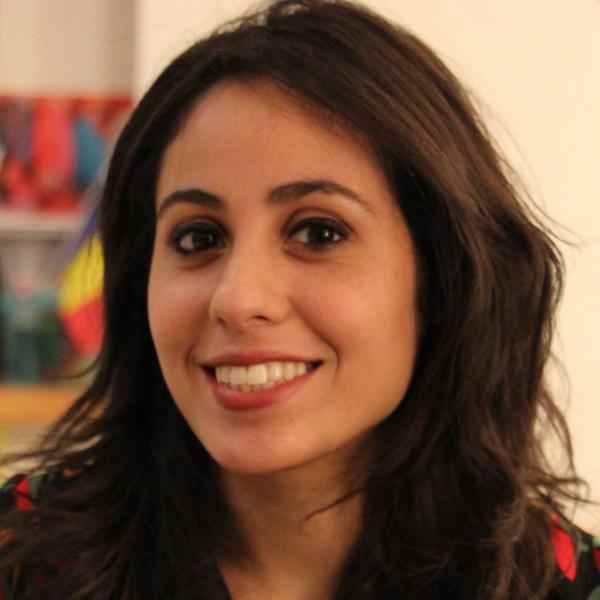
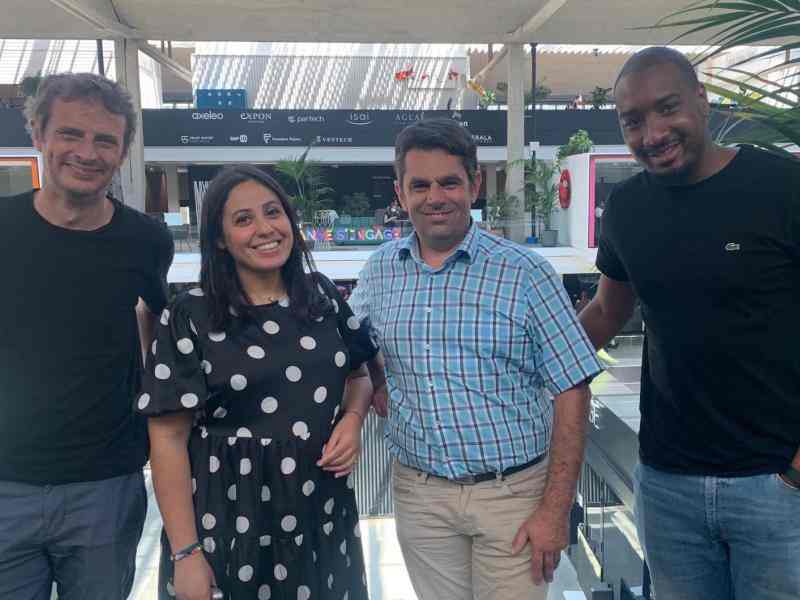 Tile image
Tile image